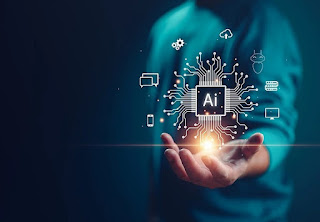Algorithms, machine learning models, software applications, and other types of inventions can all be covered under AI patents. A patent must be awarded for a technique that is new, non-obvious, and has a distinct technological use in the field of artificial intelligence. In the realm of artificial intelligence (AI), patents are an essential component of intellectual property protection. An outline of patent categories and the technological prerequisites for AI inventions is provided below:
Utility patents: These are the most prevalent kinds of patents, covering an invention's functional elements. Utility patents can shield AI-related ideas like software, hardware configurations, algorithms, and techniques for applying AI to different kinds of applications.
Design patents: Design patents protect a product's aesthetically pleasing or ornamental design. Design patents may still be applicable to the internal workings or interfaces of AI devices, despite their rarity in this field.
Software Patents: The patentability of software has been a topic of debate in the past, but if it satisfies specific requirements, it can be patented in many countries, including the US. Software patents in the AI domain may encompass new machine learning models, data processing techniques, or algorithms.
Patents on business methods: These patents address business processes, particularly those that use artificial intelligence (AI) technology. A business method patent, for instance, might protect an innovative way to use AI to tailor recommendations for online buyers.
Machine learning patents: A rising number of people are interested in obtaining patents for certain machine learning methods, algorithms, and models due to the swift progress being made in these fields of artificial intelligence and machine learning. These patents can include advancements in computer vision, reinforcement learning, neural networks, and natural language processing.
The following technologies are needed to get patents in the field of artificial intelligence:
Novelty: The invention needs to be fresh and unreported to the public before. This implies that it cannot be a carbon copy of any published material or technology that already exists.
Non-obviousness: An individual with expertise in the relevant field must likewise be unable to see the invention. This implies that an innovation cannot be a clear modification or fusion of already-existing technologies, even if it is novel.
Value: The invention must be able to be employed or used in some form, and it must also have practical value. This usually means that the invention in the context of AI must address a particular issue or meaningfully advance current technology.
Enablement: In accordance with the data in the patent application, the invention must be feasible to produce and use by a skilled individual in accordance with the rules laid out in the application. Usually, this calls for a thorough explanation of the invention, including any algorithms, procedures, or methods used.
Subject Matter Eligible for Patent Protection: The innovation must fall within one of the statutory categories. This covers, in most jurisdictions, novel, practical, and non-obvious techniques, apparatus, products, or compositions of matter.
All things considered, getting a patent for AI technology necessitates giving these conditions some thought in addition to having a solid grasp of the technology being patented and how it fits into the current legal framework for patents.
It is important to consult with a patent specialist to ensure that all requirements are met and that the application is properly drafted and submitted. Additionally, staying informed about any changes in patent laws and regulations related to AI technology is crucial for successful patent protection. Einfolge Technologies offers comprehensive patent services for AI technology, including patent searches, drafting, filing, and prosecution. Our team of experts can provide guidance and support throughout the entire patent process to help secure your intellectual property rights.
Source : https://www.einfolge.com/blog/Overview-of-AI-technology-patent-categories-and-technological-needs

Please do not enter any kind of spam links ConversionConversion EmoticonEmoticon